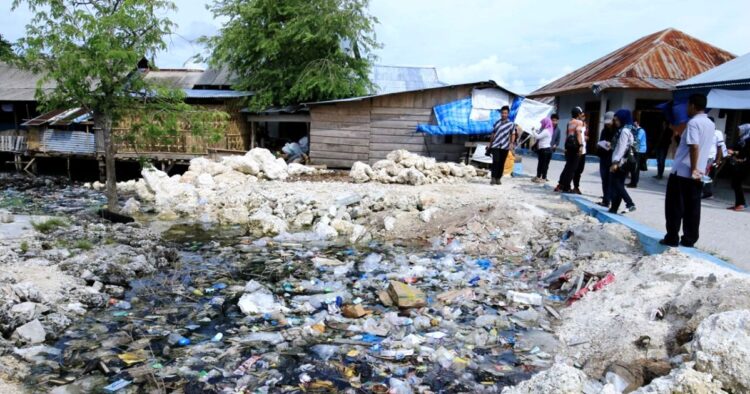Indonesia’s western coast of Java, renowned for its world-class surfing spots and vibrant marine life, is battling a menacing foe: plastic pollution.
Despite efforts to curb plastic use globally, the region is polluted with discarded plastic bottles, cups, and wrappers, threatening both, marine ecosystems and local livelihoods.
With Indonesia ranking as the world’s second-largest producer of plastic waste, fishing communities along its expansive coastline are at the forefront of the cleanup efforts. Loji Beach, nestled in West Java, is often known for its plastic pile-ups, highlighting the urgent need for action.
Local residents, relying on collecting and selling plastic waste for income, underscores the socio-economic impact of the crisis. Meanwhile, fishermen are facing a drastic fall in the number of fish they catch, and instead, there is increased plastic contamination in their nets, signaling a dire threat to food security.
The Southeast Asian nations have tightened regulations on plastic waste imports to avoid becoming plastic dumping grounds for countries like China, the US, and EU nations.
Indonesia’s coastal communities, grappling with the consequences of global plastic consumption, are taking proactive steps to protect their environment and livelihoods against this ever-growing menace.

















Comments